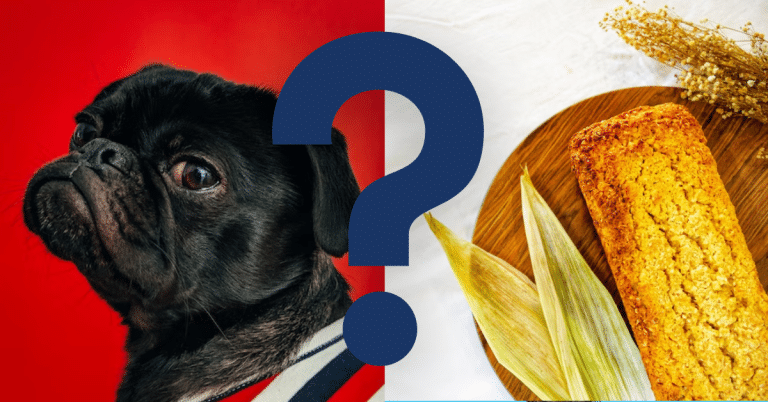Can Dogs Eat Sunflower Seeds? A Vet’s Opinion

Sunflower seeds are a nutritious and tasty snack. They contain protein, healthy fats, and essential nutrients like vitamin E and magnesium. But can you feed sunflower seeds to your dog?
Sunflower seeds are not considered toxic to dogs but are not recommended as a regular part of their diet. This is because sunflower seeds are high in fat. The fat content can lead to weight gain and even pancreatitis if consumed in large amounts. Additionally, sunflower seeds may also pose a choking hazard. It’s best to consult a veterinarian before adding new foods to their diet.
Let’s dive in:
Benefits Of Sunflower Seeds For Dogs
- Good source of protein: Dogs need protein to build and repair their body tissues, like muscles, skin, and hair. Protein also helps in making essential molecules in the body. Sunflower seeds contain a good amount of protein, around 20-25%. By giving sunflower seeds in small amounts, dogs can get the protein they need for good health. Protein is vital for active dogs and those recovering from injury or sickness. Dogs should get most of their protein from animal sources like meat, fish, and eggs, as they contain all the necessary amino acids. Sunflower seeds should only be given to dogs as a supplement, not a replacement for high-quality protein sources.
- Healthy fats: Sunflower seeds have healthy fats that are good for dogs. These healthy fats can help keep a dog’s heart healthy by reducing inflammation, improving cholesterol, and controlling blood pressure. They also help dogs have shiny coats and good brain function. Healthy fats are good for a dog’s digestion because they help them absorb vitamins and keep their intestines healthy. But sunflower seeds are high in calories, so they should only be fed to dogs in small amounts. Sunflower seeds should be part of a balanced diet to prevent them from gaining too much weight.
- Improved skin and coat health: Sunflower seeds contain nutrients that can improve the health of your skin and coat. Vitamin E in sunflower seeds protects skin cells from damage and keeps skin moisturized. Essential fatty acids help to maintain the skin’s natural barrier and prevent dryness. Zinc in sunflower seeds regulates oil production in the skin, preventing acne and other skin irritations. B vitamins, including biotin, strengthen hair and nails and improve skin health. To enjoy the benefits of sunflower seeds
- Antioxidant properties: Sunflower seeds have essential antioxidants, like vitamin E and selenium. Antioxidants protect dogs’ cells from damage. By eating sunflower seeds, dogs can support their immune system and lower inflammation. They can also reduce their chances of getting diseases like cancer and heart disease.
- Improved digestion: Sunflower seeds have fiber which helps dogs digest better. Fiber makes stool bulky and easier to pass, preventing constipation. It regulates blood sugar and cholesterol levels and supports healthy gut bacteria. But, dogs should only have sunflower seeds in moderation to avoid digestive problems.
- Potential cancer-fighting properties: Sunflower seeds contain compounds like lignans and flavonoids. These compounds may have anti-cancer properties and help prevent the growth of tumors in dogs.
- Dental health: Sunflower seeds can clean a dog’s teeth by scraping away plaque and tartar. They contain a compound called chlorogenic acid, which can kill bacteria in the mouth and prevent bad breath.
- Reduced risk of seizures: Sunflower seeds may reduce the risk of seizures in dogs because they are a good source of magnesium. Magnesium is a mineral that plays an essential role in regulating nerve and muscle function. By incorporating sunflower seeds into their diet, dogs can help ensure they get enough magnesium to support their nerve and muscle health and reduce their risk of seizures.

How To Safely Give Sunflower Seeds To Dogs
Here are the steps to give sunflower seeds safely to your dog:
- Choose raw, unsalted sunflower seeds. Dogs shouldn’t eat roasted or salted sunflower seeds because they often have oils, salt, and seasonings that can be harmful. Salt is hazardous as it can cause dehydration and kidney damage. Oils used in roasting can be high in calories and may cause stomach issues. Feeding dogs raw, unsalted sunflower seeds in moderation as part of their regular diet is safer.
- Start with a few sunflower seeds, such as one or two, and gradually increase the amount over time. It’s suggested to begin with small portions of sunflower seeds when feeding dogs to avoid adverse effects like an upset stomach, diarrhea, or vomiting. Increasing the number of sunflower seeds gradually can also help avoid digestive problems and give the dog time to adapt to the new food.
- Mix the sunflower seeds into your dog’s regular food or give them as a treat. You can grind the seeds into a powder and sprinkle it over your dog’s food. It is necessary to give sunflower seeds as a treat or mix them with the dog’s food. This is because feeding them in large quantities can cause digestive issues or an upset stomach. Mixing it with food or giving it as a treat allows the dog to enjoy the benefits of sunflower seeds in a smaller, controlled amount.
- Check your dog’s reaction to the sunflower seeds. If you notice any signs of digestive upset, such as diarrhea or vomiting, stop giving them to your dog and consult your veterinarian.
- Always remember to consult with your veterinarian before adding any new food to your dog’s diet, especially if they have any underlying health conditions or dietary restrictions.
Will Sunflower Seeds Make A Dog Sick?
In general, sunflower seeds are safe for dogs to eat in small amounts. But, if a dog eats a lot of sunflower seeds, it can cause stomach problems like vomiting, diarrhea, or constipation. Dogs should only be given unsalted sunflower seeds, and flavored or roasted types should be avoided. Salt is hazardous as it can cause dehydration, electrolyte imbalances, and kidney damage. Oils used in roasting can be high in calories and may cause stomach issues. Feeding dogs raw, unsalted sunflower seeds in moderation as part of their regular diet is safer.
Can Dogs Eat Sunflower Seeds Variations?
Dogs can eat some types of sunflower seeds, such as raw and unsalted ones, but they should avoid flavored, seasoned, roasted or salted seeds because they can be harmful. Always check the ingredients before giving your dog any variation of sunflower seeds.

Vet’s Summary
Sunflower seeds are a healthy and nutritious dog snack, but they should only be given in moderation. Dogs can benefit from the protein, healthy fats, fiber, antioxidants, and other nutrients found in sunflower seeds. However, too many sunflower seeds can lead to weight gain, digestive problems, and potentially even pancreatitis. When feeding sunflower seeds to your dog, choose raw, unsalted seeds and start with a small amount, gradually increasing over time. Watch your dog’s reaction to the seeds. Also, it is important to remember to consult with your veterinarian before adding anything to your dog’s diet. It is also recommended to take probiotics supplements. Probiotics are good bacteria that live in your gut and help keep your digestive system healthy.
Videos To Watch
If you are wondering what the benefits of giving your dog sunflower seeds are, watch this:
And if you want to find out if a dog can eat sunflower seeds, watch this:






